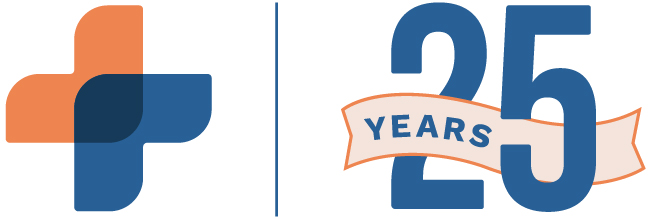Randy Boldyga sat down with Jim Beach from School for Startups Radio to discuss the dawn of healthcare technology and how it has transformed over the last 25 years of RXNT’s business.
Please note: The following interview has been lightly edited for clarity and brevity.
In 1999, RXNT’s Chief Executive Officer and Founder, Randy Boldyga, had an idea that transformed the healthcare industry and made patient care more accurate, secure, and reliable.
Randy recently sat down with Jim Beach from School for Startups Radio to discuss the origin of RXNT’s healthcare software—first with Electronic Prescribing and then EHR, Medical Billing, and more—and how it has empowered medical practices and healthcare organizations to launch, succeed, and scale their businesses. Additionally, Randy shared some of his best tips and guidance to fellow business leaders on successfully hiring for and growing their company.
Tune in to the full School For Startups episode here, or continue reading for a recap of the Randy’s Q&A segment of the podcast.
Beach: Can you tell us the history [of RXNT] and story of what you do?
Boldyga: Back in May of 1999, I started RXNT with the idea we could create a better process for electronic prescribing after we recognized that there were a lot of challenges with prescriptions. As you probably remember, you were getting a prescription by paper at that time—you were taking that prescription to the pharmacy [and] you were waiting for sometimes an hour or two for the prescription to be filled, while maybe not feeling your best. It just creates a miserable experience.
As an example, there were handwriting misinterpretations by pharmacists; there were just a lot of challenges. We recognized that creating a piece of software that allowed physicians to generate a legible prescription electronically that went to the patient’s pharmacy of choice was going to be a home run. And sure enough, it was.
Beach: How did you get started? You don’t have a background as a programmer, so how did you hire someone to write it while still bootstrapping?
Boldyga: Early on I recognized that I needed to stay in control of the company and its processes, so I decided to bootstrap. I went out and created a business plan and pitched that plan to some friends and family who said, yes, I think this is something that might be a home run. Then at the same time, I took that capital and I added a small team of engineers to create a product that I could go to market with.
Beach: Did you build out the original product or was it just bare bones?
Boldyga: You hear these stories from entrepreneurs all the time saying timing is everything, and I certainly feel like that was the case for me. It was during the dot-com meltdown when companies that had gone out and gotten venture capital were going belly up and VCs didn’t have any appetite for investing in companies like mine. That was an opportunity for us. We built a pretty bare-bones product out of the gate, and then doctors who were using the system were advising us. We just kept building, listening to our clients, and adding new features. Meanwhile, our competitors were going out of business. Clients using other products started coming to us and before we knew it, we had thousands of providers using our software all over the country. It was crazy.
Beach: How does HIPAA impact your business?
Boldyga: Over our 25-year span, there have been a number of regulations we’ve had to comply with. Some of them make absolute sense, like HIPAA. As you’re building your software, you just have to make sure you’re complying with these standards. Some of them have been a little more stringent and time-consuming, but all in all, I think it’s like anything else in any industry: you’re going to have to meet these requirements in order to play ball, so we obviously do.
Beach: Have there been changes from administration to administration that have impacted you, or has it been pretty consistent?
Boldyga: There have been impactful changes [for every] administration. As an example, during the Obama administration, there were incentives provided to providers for adopting electronic medical records. There have been numerous challenges—especially when you’re a small vendor, you’re trying to compete with the big guys and you don’t necessarily have all the resources that they do. So, when administrations put certain regulations in place, it can be impactful for a smaller player; some of it’s beneficial, but sometimes it’s just the opposite.
Beach: Has electronic records become a part of your offering as well?
Boldyga: Yeah, absolutely. We started as an e-prescribing company but obviously found that we needed to have a full electronic medical record and even a practice management solution [to compete]. We’ve built a full suite [of software] and we offer that to providers nationwide.
Beach: How did you get your very first doctor to say yes?
Boldyga: We found a local physician in our community and we asked him if he would be interested in trying our software. He agreed to do that, and he was instrumental in us being able to build.
Beach: What percentage of doctors are using e-prescribing today?
Boldyga: Almost all providers are doing it on some level or another. Maybe not every prescription is getting generated electronically, but certainly a large number of them are.
Beach: How does it work for controlled substances?
Boldyga: Yes, there are standards now. There is electronic prescribing of controlled substances—the acronym is EPCS—and EPCS is a national standard. Now, there are circumstances where those prescriptions can be written on paper but as a whole, there is a push nationwide to use EPCS and prescribe electronically. There are features within our product that we have to comply with under DEA regulations, such as two-factor authentication to ensure that the person who’s prescribing that medication is the actual licenesed physician.
Beach: How big is RXNT now?
Boldyga: We have 150 full-time employees, and we probably have another 20 part-time employees or consultants working with us around the world. Most of them are US-based. Our revenue in 2024 was about 54 million, and we expect to see that jump at a nice clip of somewhere between 70 and 80 million by the end of 2025.
Beach: How do you spend your time, Randy?
Boldyga: I have an amazing executive team. Seven folks report to me at the executive level, and I spend my time working with them and making sure they have what they need to be successful. I’ve spent a number of years bringing these folks into the fold and making sure that I have a quality team who work directly for me. Everybody who reports directly to me has been with the company for at least five years. They are all very good, dedicated, hardworking people. If I were talking to an entrepreneur about what it takes to be successful, I’d say it’s finding smart, hardworking people to surround yourself with.
Beach: How have you found those people? What does your recruiting process look like?
Boldyga: I would recommend taking the time and energy to work with a quality recruiter to find the right people. I would encourage [an executive] to take your time, make sure you’re finding the right people, make sure they’re qualified, and make sure they’re going to check all the boxes. For me, a big one is just making sure this person’s personality is going to work well with me, understanding your own strengths and weaknesses, and making sure they are the kind of person you can work with.
Beach: What’s your work style?
Boldyga: I like to say the CEO’s work style creates the culture of your organization. I’m a high-energy, “let’s change the world” kind of guy. I don’t want to surround myself with people who don’t want to get to that next level. And there’s nothing wrong with that—there are people who are perfectly content with coming in, working their nine-to-five job, and going home. That’s just not who I am, and I don’t want to work with folks who aren’t on the same page.
Beach: Do you think you’d have been just as successful running a different kind of business?
Boldyga: Yeah, I think that’s just who I am. I’ve always been that kind of guy. I think I would be equally successful in anything I did.
Beach: Do you see yourself here the rest of your career, or do you think there’s a second act?
Boldyga: People ask me that all the time, and I like to say I’m not smart enough to pull this off two times in a lifetime. But it’s hard to say, Jim. I’m having a good time doing what I’m doing now, and if I were to exit and go somewhere else, I’m sure I would take the same perseverance with me to that.
Beach: What do you do when you’re not working?
Boldyga: I have a pretty well-rounded life outside the office. My wife and I have three sons and we do a lot of traveling. In the summertime, we love going on cruises and in the wintertime, we enjoy skiing. We’re always getting into something, but traveling is generally what we like to do.
Beach: What’s the plan for replacing yourself?
Boldyga: I say this to my executive team all the time: everybody on the team, including myself, has to think about a contingency plan. What happens? I use that phrase, “What happens if you get hit by a bus?” So, certainly, there is a plan.
Beach: What was it like the first time you went on vacation? Was it scary?
Boldyga: I’m not going to lie, if you’re bootstrapping a company, [vacation] is one of the areas you’re going to have to sacrifice. I made several sacrifices in the first 10 years of running the company. And it’s just one of those things where your vacation isn’t like the vacation you’ve had before you start a business like this.
You’re not leaving the office without somebody pinging you with issues, or concerns, or things that need to get taken care of. People need to get direction from you. As long as you’re okay with that, bootstrapping is the way to go. If you feel like you’re the kind of person who doesn’t want to make those kinds of sacrifices, maybe getting venture capital involved is a better direction for you. But, [just know you’ll] lose control, and you’re not [going to be] the person making all the decisions, so you have to weigh those things out.
Beach: Randy, great story. Thank you so much for being with us and sharing it. Thanks a lot. We’d love to have you back.
Boldyga: Yeah, it was great talking to you, Jim! Thank you for your time.
We’d like to extend a big “thank you” to Jim Beach and School for Startups Radio for hosting us on their podcast. You can learn more about Jim and the School for Startups podcast on their website at www.schoolforstartupsradio.com.





